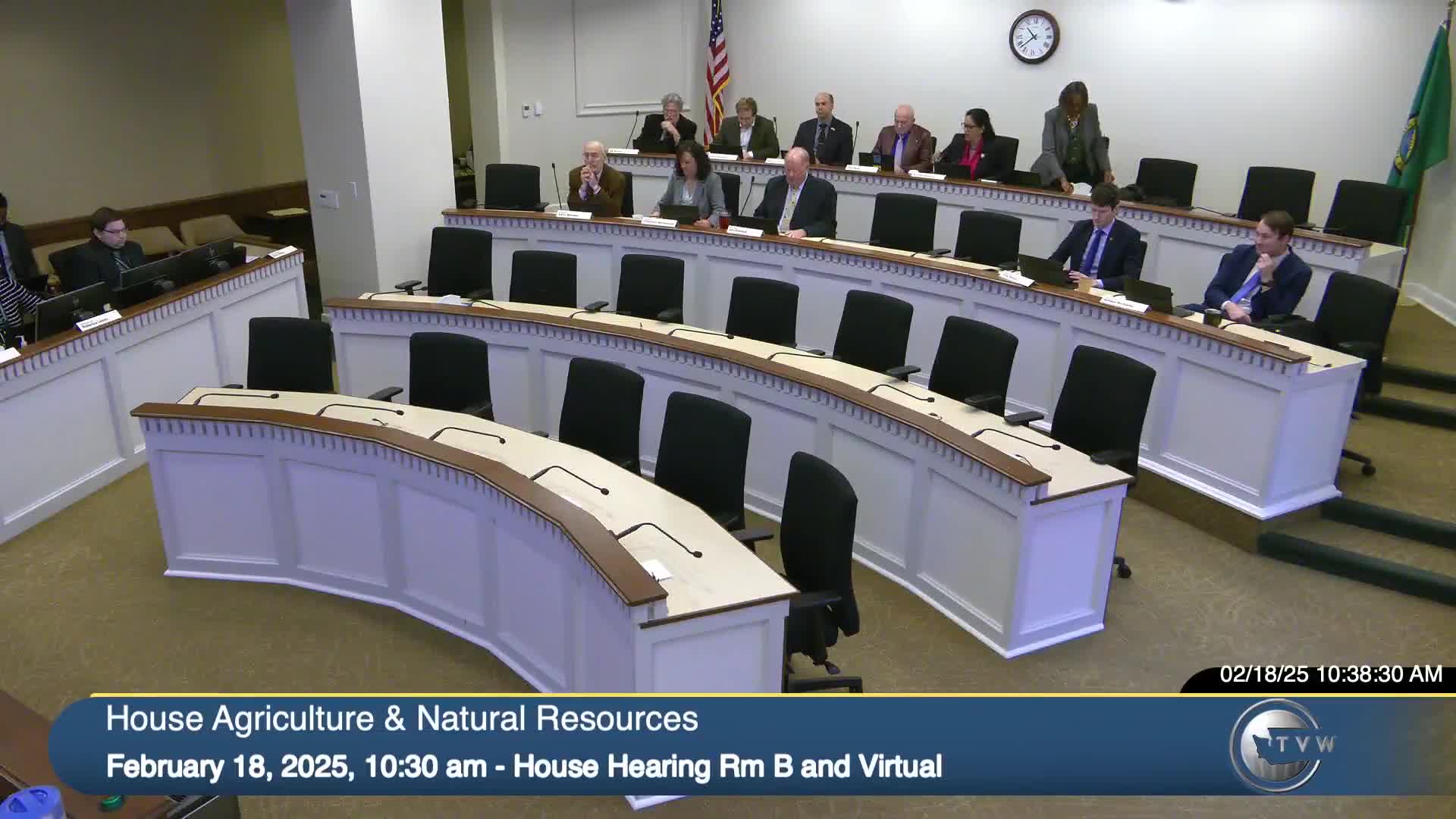Committee hears bill to require pet stores to provide invasive-species information to customers
Get AI-powered insights, summaries, and transcripts
Subscribe
Summary
House Bill 1976 would require retail pet stores to give customers a pamphlet produced by the Washington Invasive Species Council explaining risks of releasing pets or aquatic plants; sponsors, agency staff and hobbyist groups largely supported an educational approach while raising implementation and cost questions.
The House Agriculture and Natural Resources Committee heard testimony on Feb. 18, 2025, on House Bill 1976, which would require retail pet stores to provide customers with a pamphlet prepared by the Washington Invasive Species Council explaining risks and rehoming options for pets and aquatic plants.
In a staff briefing, Rebecca Lewis explained the bill’s purpose and context: “By way of background, invasive species are species of animals that are not naturally occurring in Washington and that pose risk of harming or threatening the state's environmental, economic, or human resources. The state invasive species council was created by statute in 02/2006 to provide policy level direction, planning and coordination to prevent the spread and introduction of invasive species.”
Sponsor Representative Brandy Donaghy told the committee the bill is intended to reduce incidents in which pet owners release animals or plants into local waters or landscapes. “When people get pets they don't always wanna keep them,” Donaghy said, adding that releases can lead to costly and ecologically destructive outcomes such as zebra mussel infestations. She described the bill as a way to “make sure that that information is brought to the consumer so that they can make better choices.”
Technical witnesses described past invasive incidents and implementation questions. Brock Miller of the Recreation and Conservation Office, which houses the Washington Invasive Species Council, said recent incidents tied to imported “moss balls” produced zebra mussel detections in 2021 and again in 2024, and that the council already conducts education and industry outreach. Miller said the bill would benefit from clarifications about responsibility for printing and distributing physical pamphlets and how specific product categories are covered.
The Washington Retail Association, represented by Crystal Leatherman, said the association supports an educational approach rather than punitive measures and praised sponsor outreach to retailers. Phil Goss of the United States Association of Reptile Keepers, testifying remotely, recommended a compact, updateable format — for example, “maybe just a small postcard or a very simple brochure with a QR code again so that you could update it on a whim rather than having to wait till the next time that you print 10 or 20,000 of these.”
A student witness, Rebecca Daniels of Lake Washington High School, described ecological and animal-welfare harms and noted that “Under Washington state law, this is classified as animal cruelty in the first degree of felony offense,” arguing that better consumer information would reduce those incidents.
Committee members asked about the number and specificity of pamphlets required, printing costs and which office would maintain the materials; staff said the fiscal note and stakeholder work would clarify those implementation details. The committee took public testimony and did not vote on HB 1976 during this session.
